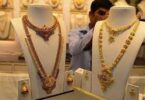Daniel Moss
If Japan wants the Tokyo Olympics to be remembered for anything other than its perseverance over Covid-19, Yoshiro Mori has to go. That it’s taking the former Japanese prime minister so long to depart speaks to the enduring legacy of old-style machine politics, and how ill-suited it is for the modern world.
As head of the Olympic organizing committee, Mori has been under fire since his sexist remarks last week, when he disparaged women for talking too much in meetings. He intends to resign Friday, Japanese media reported. While the writing may have been on the wall, Mori clung on — much as he did to the post of prime minister around the turn of the century, long after it was clear his leadership was toxic for the ruling Liberal Democratic Party. He was a symptom of decay within the LDP, which was voted out for the first time later that decade. Mori, 83, is a holdover from the years when smoke-filled rooms of men from one party made critical decisions. Rapid economic growth in the decades after World War II shielded this kind of patriarchal governance from too much sunlight.
But the international uproar that followed Mori’s recent comments led to a rebellion from Olympics sponsors, global corporations with customers and profiles that go way beyond the salons of Tokyo.
For Prime Minister Yoshihide Suga, who is struggling with a collapse in popularity, a weakening economy and a spike in coronavirus infections, Mori is a problem he must be eager to shed. It’s not uncommon for the political class to be represented near the top of Olympics organizing committees.
Current and former members of parliament from governing parties had big roles at the Sydney games in 2000 and London in 2012. No city wins the right to host the event without a full-court press; local and national governments play a big role in lobbying.
Even by those standards, Mori was a spectacularly poor choice. He became prime minister by accident in 2000 when then-leader Keizo Obuchi suffered a stroke and was incapacitated. Among Mori’s howlers, he was once part of a delegation that suggested North Korea solve a long dispute over allegations it abducted Japanese nationals by pretending to “find” them in another country. His popularity dipped to 9%.
The cozy world of male-dominated politics that gave rise to Mori — he was first elected to parliament five decades ago — is no match for 21st century corporate sponsorship and athletic diplomacy. Toyota Motor Corp., a global Olympics sponsor, was never going to tolerate the former prime minister continuing in the role for long. The head of the company said he was “disappointed” by the remarks.
This also may have just been the last straw.
The Tokyo games were struggling under Mori’s leadership well before the pandemic, including alleged bribery over the city’s bid, followed by accusations of logo plagiarism, a U-turn over stadium design and worries about the safety of holding events in the nuclear disaster-hit Fukushima prefecture. Mori makes a convenient fall guy. Even if former Japanese politicians are infamous for retaining influence, I wouldn’t bet on a Mori comeback. Too much has changed in Japan and the world since Mori’s heyday. Let’s hope his successor recognizes this, and knows how to stay out of the limelight.
Bloomberg






